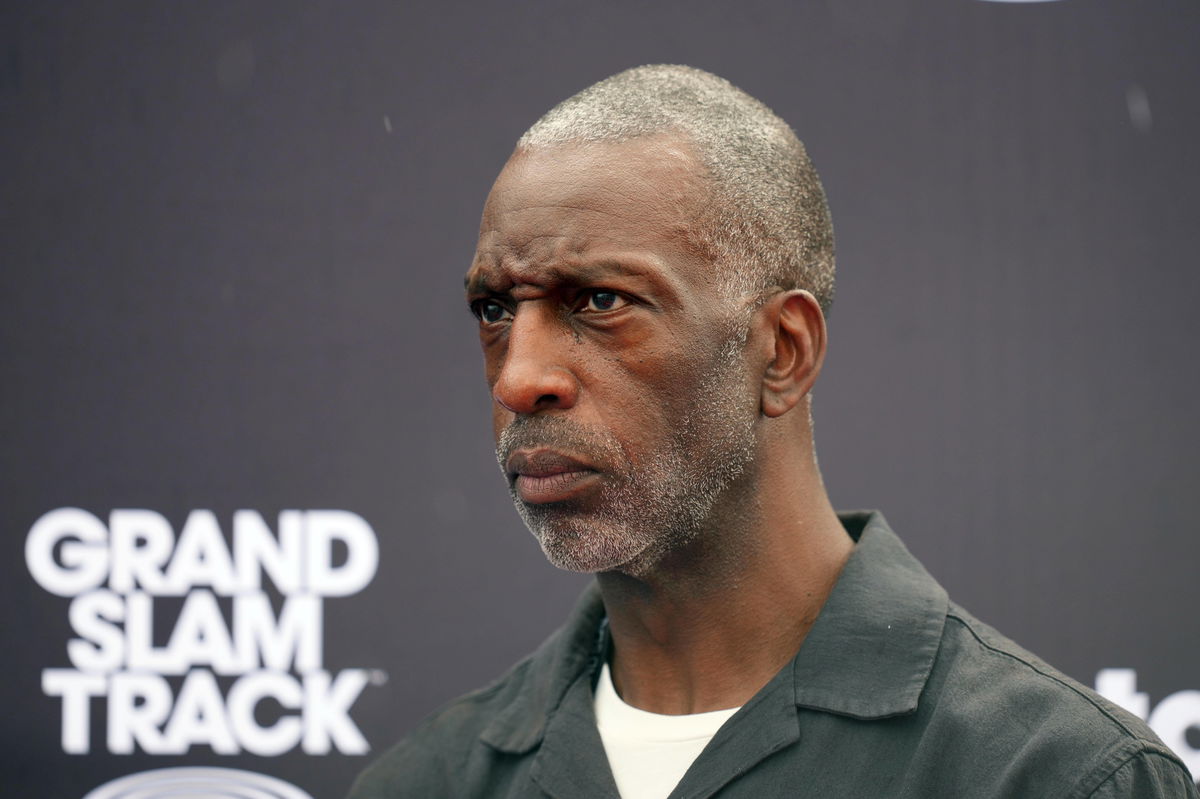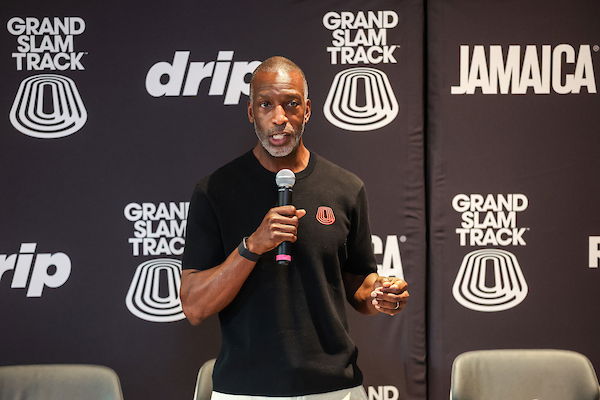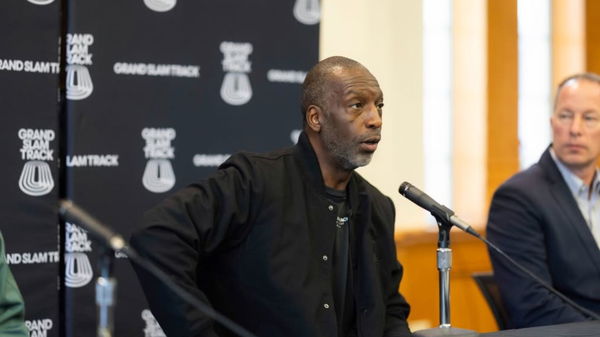
Imago
Track & Field: Grand Slam Track Miami May 4, 2025 Miramar, FL, USA Michael Johnson reacts during the Grand Slam Track Miami at Ansin Sports Complex. Miramar Ansin Sports Complex Florida United States, EDITORIAL USE ONLY PUBLICATIONxINxGERxSUIxAUTxONLY Copyright: xKirbyxLeex 20250504_hlf_al2_126

Imago
Track & Field: Grand Slam Track Miami May 4, 2025 Miramar, FL, USA Michael Johnson reacts during the Grand Slam Track Miami at Ansin Sports Complex. Miramar Ansin Sports Complex Florida United States, EDITORIAL USE ONLY PUBLICATIONxINxGERxSUIxAUTxONLY Copyright: xKirbyxLeex 20250504_hlf_al2_126
It was supposed to be the future of track and field. A sleek, athlete-first league with glimmering promises and real cash on the line. Michael Johnson, one of the sport’s most recognizable names, had lent more than his name. He had poured his reputation into the Grand Slam Track. Now, he finds himself at the mercy of decisions made in Washington, D.C. But now, the shimmering vision has dimmed. Regulatory hurdles in Washington, D.C., stalled its momentum, and only now, as Johnson breaks his silence, is the full picture beginning to emerge.
Watch What’s Trending Now!
By all appearances, Grand Slam Track was not born underfed. With backing reported at $30 million, its ambitions weren’t marginal. Johnson and his team made it clear. This was to be a global showcase, with six-figure prizes and high-grade logistics. At its first event in Kingston, Jamaica, the stands had energy, and the sprint groups looked sharp. The league made waves, and for a moment, Johnson’s vision seemed within reach.
Then came the collapse. Not the slow leak of poor management or unmet benchmarks, but a rapid unraveling triggered by a shift in political climate. According to someone with knowledge of the situation, an investor who had pledged an eight-figure sum rescinded their support days after attending the league’s debut event. Their reasoning? They reportedly decided to redirect funds following Donald Trump’s tariff announcement. And this led to a sorry confession from Michael Johnson. Speaking to Front Office Sports Today, the track legend said, “That was a huge blow to us, caused a major, major cash flow issue for us, put us in a difficult position, put our athletes in a difficult position… But we’re very confident that we’ll pull ourselves out of it.” The fallout of that pivot was swift.
ADVERTISEMENT
For now, the league currently owes athletes at least $13 million, along with an undisclosed amount to vendors. That includes unpaid bills to at least one venue, where Grand Slam Track has reportedly missed multiple payment deadlines. Without the pledged capital, Johnson was forced to cancel the league’s final event in Los Angeles, an action he originally chalked up to logistical hiccups before later admitting the truth. Grand Slam Track was out of money. Initially, after the cancellation of the fourth meet, Johnson confirmed that it was not a monetary issue. But now, he has revisited his statement and has accepted that the decision to cancel the event was actually due to a financial crunch.

ADVERTISEMENT
The consequences extend beyond missed races and unreleased checks. Johnson, whose credibility served as the face of the league, now stands exposed. Athletes are owed millions in prize and appearance fees. Gabby Thomas’s public plea to “Pls pay me” on the league’s social media underscored both the frustration and the visibility of the issue. Vendors remain unpaid, including a facility that is still waiting on $78,000 for a meet held over two months ago. With no interest clause in that contract, there may be no legal penalties for delay, but the reputational damage is significant.
ADVERTISEMENT
Worse still, this was not a failure born of disinterest. Grand Slam Track had talent. It had an early buzz. And it had a credible claim to filling a void in elite track competition. But when high-stakes politics enters the arena of private investment, not even a four-time Olympic gold medalist can insulate a project. Johnson, who once ruled the backstretch with defiant poise, now finds himself boxed in. Stuck between unfulfilled financial pledges and athletes who believed in a promise built partly on his name. And with so many complications coming through, Grand Slam Track has witnessed its executive members leave!
Grand Slam Track quietly loses top execs amid season finale cancellation
Few organizations shed leadership as quietly as they rearrange their architecture, but Grand Slam Track has opted for precisely that posture. With little noise and no official explanation, the league has seen the exit of Rick Qualliotine and John Porco, two executives central to its public operations. Qualliotine, once a fixture at NFL Media, held responsibility for the league’s content arm. Porco, previously of WWE, oversaw live events. Neither has been replaced, and no timetable has been provided for appointments. When contacted, Grand Slam Track declined to issue a statement. The individuals involved, too, remain unreachable.
ADVERTISEMENT

Imago
Image via Instagram/@grandslamtrack
and @mjgold4
Their departures arrive amid a broader recalibration. Grand Slam Track recently cancelled its season finale in Los Angeles, leaving observers to speculate about internal stability. That speculation now has firmer ground. Though the league continues to position itself for a second season. In its debut, having launched in April, there is no mistaking that this is a restructuring, not merely a delay.
Despite the ambiguity, the league has signaled that it is far from idle. Recent additions to its investment portfolio include Richelieu Dennis and Robert F. Smith, the latter already serving on the Board. Dennis’ media group has been engaged to strengthen commercial ties, suggesting that while Grand Slam Track may be revising the blueprint, it is not retreating from the field. Still, the absence of two experienced hands, paired with a halted marquee event, leaves open questions. Without comment from those involved, the league’s direction remains difficult to chart.
ADVERTISEMENT
ADVERTISEMENT
ADVERTISEMENT
ADVERTISEMENT